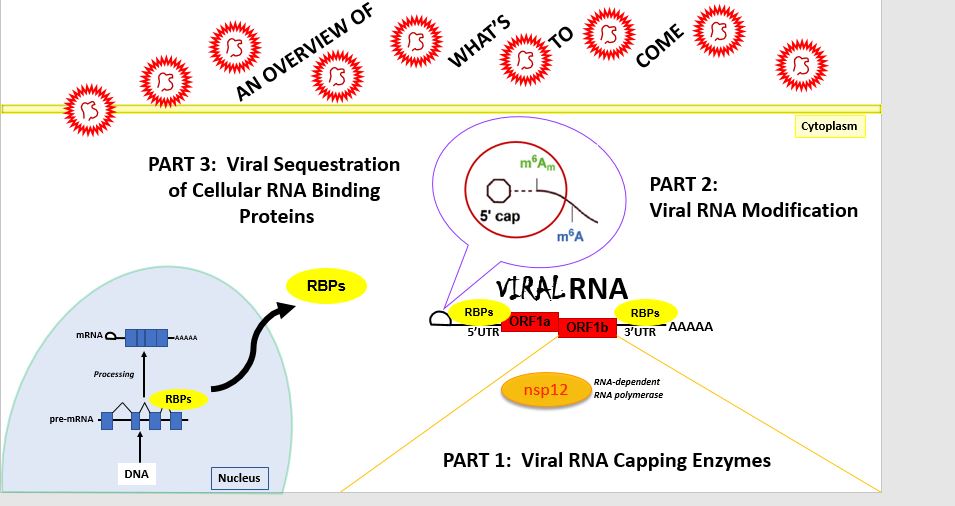CM 793 Presentation Date: October 14, 2021 @ 2:00 PM in Pathology 103
Title: SARS-CoV2 Viral RNA Biology and its Impact on the Infected Cell
Advisor: Dr. Jeff Wilusz

CM 793 Presentation Date: October 14, 2021 @ 2:00 PM in Pathology 103
Title: SARS-CoV2 Viral RNA Biology and its Impact on the Infected Cell
Advisor: Dr. Jeff Wilusz

ABSTRACT:
Our laboratory investigates fundamental knowledge gaps in the RNA biology of SARS-CoV-2. Specifically, we are interested in the molecular mechanisms underlying SARS-CoV-2 mRNA capping, cap-proximal adenosine methylation, and the impact of viral RNA-protein interactions on host cell RNA biology. First, to characterize the putative role of the viral Nsp12 protein as the guanylyltransferase involved in SARS-CoV-2 mRNA capping, we have successfully expressed and purified recombinant protein. We are currently performing biochemical assays and mutagenesis studies to gain insight into enzymatic mechanisms and potential drug targets. Second, we obtained evidence suggesting that the A residue at the 5’ end of SARS-CoV-2 mRNAs likely contains an ‘m6Am’ methylation modification. This is significant because all cellular mRNAs that initiate at an A residue contain a similar m6Am modification. Thus, we hypothesize that SARS-CoV-2 is modifying its mRNAs to prevent their detection as ‘non-self’. We are currently testing this hypothesis and will identify the mechanism of SARS-CoV-2 m6Am RNA modification. Finally, two cellular proteins (hnRNPA1 and PTBP) that regulate alternative splicing bind to the abundant viral mRNAs in related coronaviruses and become mis-localized to the cytoplasm during infection. Therefore, we hypothesize that SARS-CoV-2 mRNAs can sequester these splicing factors leading to significant changes in alternative mRNA splicing. RT-PCR analyses of the splicing patterns across select exons of hnRNPA1/PTBP-targeted pre-mRNAs confirm this hypothesis and suggest a new mechanism for the impact of SARS-CoV-2 infection on cellular RNA biology. These studies collectively focus on attractive targets for developing novel broad-spectrum anti-coronavirus drugs.